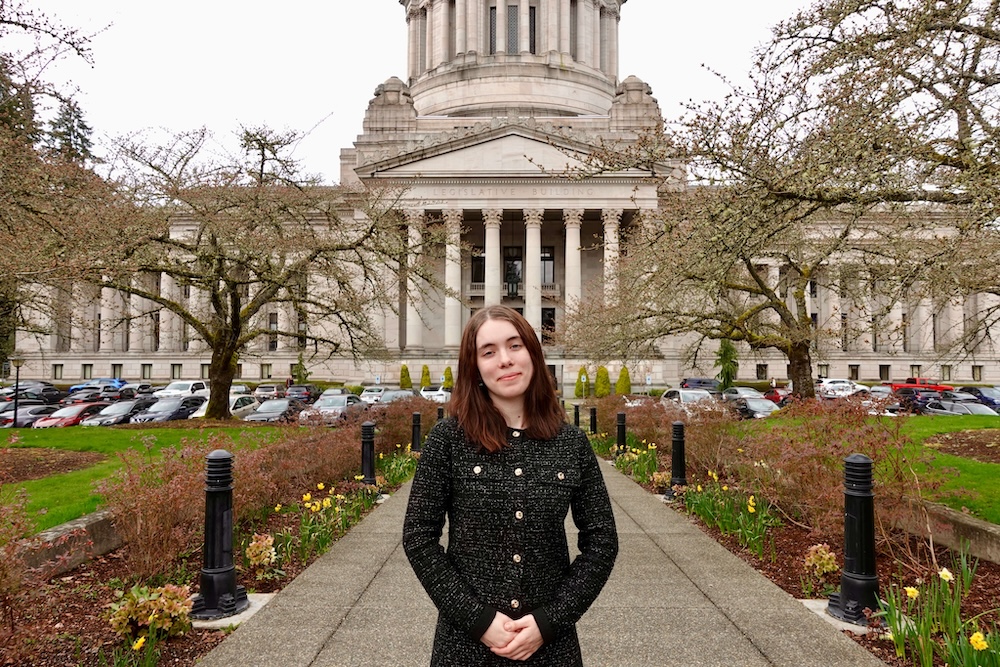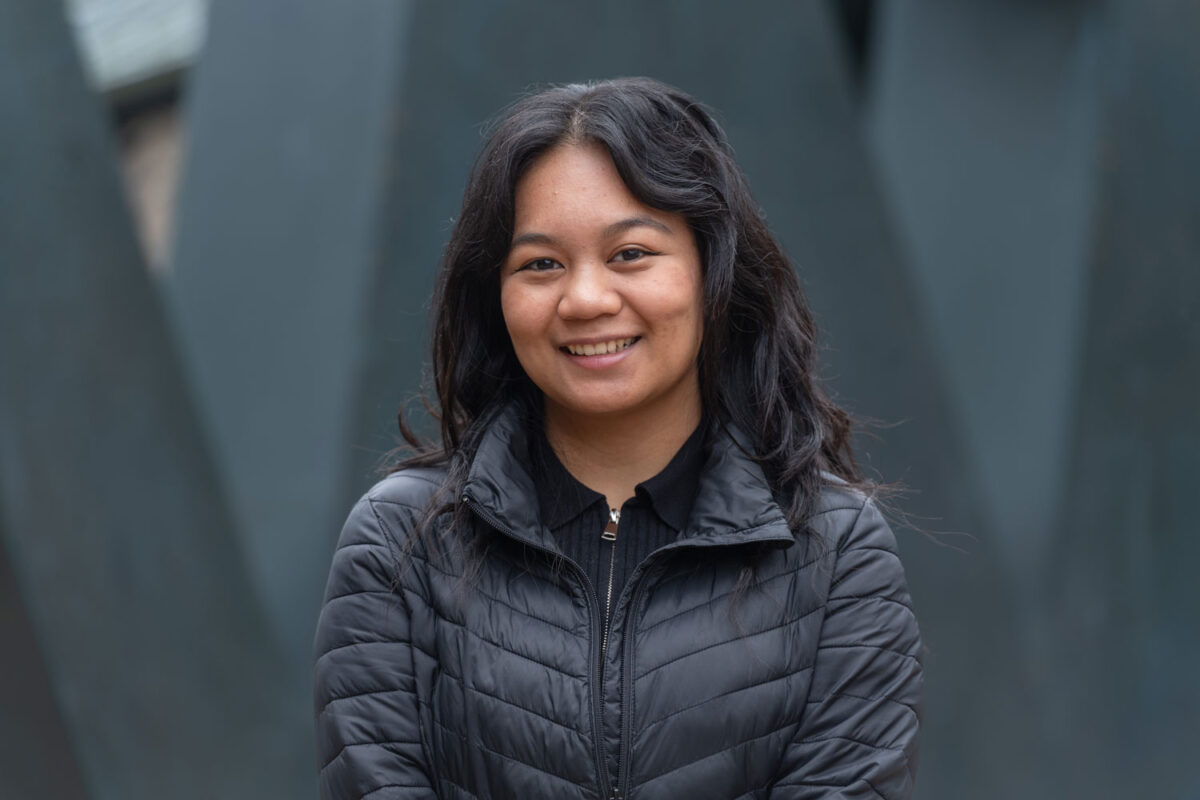By Sam Locke
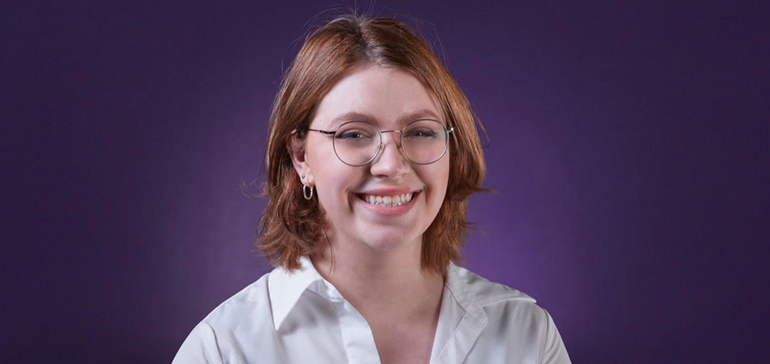
On my left wrist, I have a tattoo of a purple cancer ribbon. It is the first tattoo I ever got, two days after my 18th birthday. My mom has a matching one that she got at the same time.
Cancer has always been a kind of constant in my life.
The first time I led a Relay For Life team, I was 11. It was the year after my grandma went through radiation treatment while living with my family. I began volunteering with the American Cancer Society because her illness had a profound impact on my life.
I stayed active in the Relay community for several years. I probably would regard it as the first true activism work I ever did. My most formative years were marked by cancer, by sickness and by my commitment to trying to solve it.
When I was 16, I lost both my grandfather and my uncle to cancer, in the span of a month. My grandpa was my person; I was named after him, and we shared a love of history, books and dogs. When he died, he left me his entire library with the understanding that I would love and respect the books the way he did.
It broke me.
So, when I was 18, I got my tattoo with my mother, and we did it in his name and honor.
Within three months of getting that tattoo, my dad was diagnosed with cancer. I dropped out of the previous university I attended to be his caregiver. He survived — now three years in remission — and I enrolled at UW Bothell.
But my story is not a sad story.
I believe a natural state of the human condition is to mourn for the lives we could have had without illness or without losing the ones closest to us. I’m more than susceptible to that, myself. I often find myself thinking about how different my life would be without endometriosis, mental illness or the cancers of my loved ones. Would I be happier? What would I be doing now?
Who I am inherently has been shaped by my experiences, and I can’t say that I would change that, for better or worse.
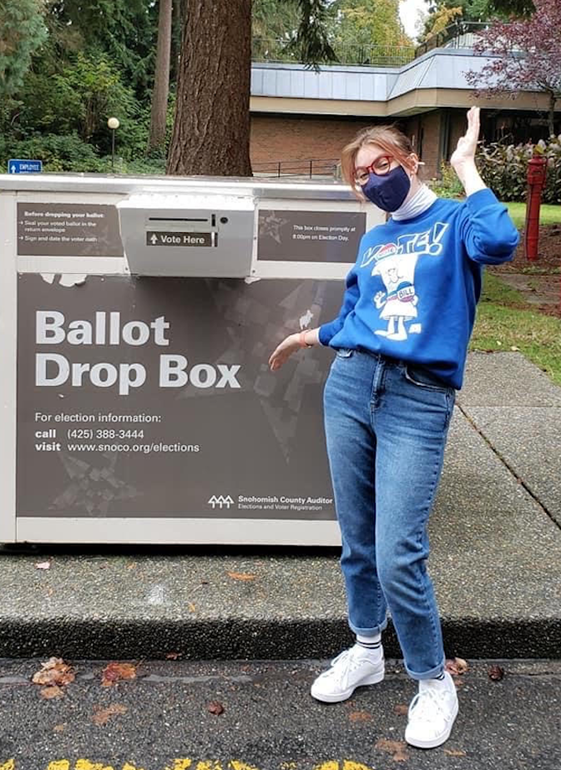
In 2020, a year into my studies at UW Bothell, I decided to take a job on a political campaign. Jamie Smith of Washington’s 25th legislative district, a high school teacher with a passion for equitable education and health care policy, was running for office. Jamie quickly became a dear friend; we bonded over our opinions that health care should be affordable and accessible for all, that schools should have more counselors with more availability to students and that schools should be fully funded, with considerations for special education.
It was through working on Jamie’s campaign that I became motivated to continue working in politics. I pursued a job on the Associated Students of the University of Washington Bothell as the legislative liaison, a role in which I lobbied for student needs in Olympia. As a lobbyist for ASUWB and the Washington Student Association, I spearheaded student-needs efforts for health care and Title IX policy.
There are a lot of policies we worked on that I’m very proud of. One of the best was a bill, sponsored by Rep. April Berg of the 44th legislative district, which put period products into women’s and gender-neutral bathrooms in K-12 and higher education institutions. I loved that bill for so many reasons — as a person with endometriosis, I have firsthand experience with needing accessible products in school bathrooms. My hope is that, like the city of Ann Arbor, Michigan, these products will soon become available for free in all public restrooms, not just at educational institutions.
The one spot on the bill which my colleagues at the WSA and I didn’t like was that it didn’t have any provisions for men’s bathrooms, which meant it wasn’t as inclusive of trans, nonbinary or intersex people as it could be. Through working with Mary Fosse, now a member of the Everett City Council, and Reps. Berg and Emily Wicks, as well as members of the Washington State LGBTQ Caucus, we were able to draft an amendment which put the products into men’s bathrooms, too. I am so incredibly proud to write now that the bill was signed into law in 2021 with our trans-inclusive amendment.
In this time, I became involved with organizations such as the Red Sea Collective and PERIOD. PERIOD., self-described on its website as “a youth-fueled nonprofit that strives to eradicate period poverty and stigma through service, education and advocacy,” awarded me its Youth Champion Award for Advocacy in 2021 for my work on menstrual equity policy and particularly trans inclusion. If I’m being honest, it’s still kind of surreal to me — transgender and queer people should be as considered in policy decisions as cisgender and heterosexual people. They should never be secondary or an afterthought.
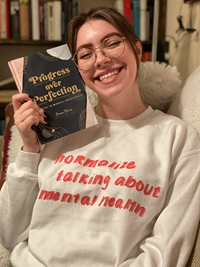
During my time on ASUWB, I also became intimately acquainted with the mental health needs of the campus. I worked with Rosemary Simmons, the director of Counseling, Health and Wellness at the time, to study funding needs and goals for the future of the counseling center. I wrote an op-ed on why more funding should be given to the counseling center, which was published in the Husky Herald with more than 100 signatures of students, staff and faculty endorsing the need. From there, I became involved with Behavioral Health Day on campus, where I helped advocate for students living with mental illness and disability at UW Bothell.
I’d be lying if I said I wasn’t a little burnt out at this point. Activism work isn’t welcoming; every effort is met with an uphill battle because you are inherently trying to create change in a social institution or around an issue. That might be creating health care policy, or it might be trying to raise money to cure cancer.
That said, there are so many things I want to do with my future. Right now, I’m taking a pause to focus on me. I graduate at the end of this quarter with honors. I’m currently doing research with Dr. Karam Dana, associate professor in the School of Interdisciplinary Arts & Sciences, before continuing my education post-grad and earning at least one graduate degree. I hope to use that advanced degree to continue helping people, to help create a future that’s just a little brighter, a little more hopeful. Whatever pathway I end up taking, I don’t see my passion for health care and equity diminishing; it is ingrained in me, in everything I do. My worldview is tinted by my experiences, and I intend to do what I can to make the world a better place.
My story is not a sad story. It’s not a hero story. It’s just a story about me, a human being doing what I can do. And I’m pretty proud of that.
Sam Locke is a senior in the School of IAS majoring both in Global Studies and in Society, Ethics & Human Behavior, with a minor in Gender, Women & Sexuality Studies. She will be graduating in spring 2022. She was the 2020-21 legislative liaison for the Associated Students of the University of Washington Bothell and the 2021 recipient of the PERIOD. Youth Champion Award for Advocacy and the Leslie Ashbaugh Feminist Praxis in Education Award. You can see Sam speaking at Behavioral Health Day on May 18, 2022. More information to be announced.

